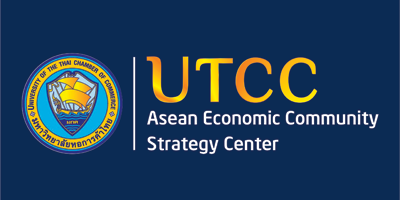Myanmar: 5pc commercial tax on pure gold opposed by traders
In a meeting on April 30, gold entrepreneurs and traders decided to suspend the commercial tax on pure gold in 2017. Earlier, they have collected signatures and sent a petition to the Legal Affairs and Special Cases Assessment Commission, Ministry of Planning and Finance, Ministry of Commerce and Ministry of Mining. They said that a 5pc commercial tax should not be levied on pure gold.
“A 5pc tax levy is not found in other countries except the Philippines where the tax rate is 3pc. Gold is not a major commodity in the Philippines, [so] why did they stipulate a law which cannot be found internationally?
“Before becoming developed countries, how did the US, Canada and Australia work with those kinds of laws? We need to know our situation,” Myanmar Gold Entrepreneurs Association joint-secretary U Maung Ko said.
Gold businesses may shut down or might switch to sales in the black market as they cannot afford taxes, hence the expected commercial tax revenues will not be obtained, he added.
“Trade has been slack in our goldsmith industry for two years. Even though we are working every day, we can’t make ends meet. If they impose a 5pc tax, how can we survive? The livelihood of a goldsmith is very hard today.
Big shops maintain the status of goldsmiths to survive …. the rest are not in good shape. Five out of 10 goldsmith workshops went out of business. They can’t survive,” Ye Htut Aung from Aung Kabar gold shop said.
Gold is bought mostly for two purposes: as an accessory and when you need money. As it is not that only the rich who buy gold, ordinary people too have to be taken into consideration, he explained.
“We can’t escape the tax. Even if you run a shop at your house, you can’t escape. Gold cannot be considered as a property for the rich. It is also for the poor,” gold shop owner U Khin Maung Htoo said.
“We want to pay more taxes. We have no objection to taxation. The amount that we are paying now is just in thousands. But the tax amount should be the right one that the people can actually pay,” U Aung San Win from Aung Thamadi gold shop told The Myanmar Times.
Last August, collective comments from gold businesses regarding commercial tax rates were presented at the Wilson hotel in Mandalay by Myanmar Gold Entrepreneurs Federation and Mandalay Gold Entrepreneurs Association. Those suggestions were also signed by gold entrepreneurs from Yangon Region and other states which were then sent to five offices including Mandalay region chief minister and Mandalay mayor. After that, commercial tax rates were defined as 1pc for golden jewellery and 5pc for purified gold.
Commercial tax was introduced around 1990 and at that time the rate was 20pc. It was later reduced but taxes had not been collected effectively since then, according to Department of Revenue Director General U Min Htut at a meeting held at Mandalay Region Chamber of Commerce and Industry.
Imposing a 5pc commercial tax on pure gold may be a measure to prepare for a central gold market to be launched in Nay Pyi Taw this June, gold entrepreneurs said.
Business people in the gold industry have long complained about the difficulties.
Planning and Finance Minister U Kyaw Win received a barrage of requests to cut taxes during a meeting with a group of almost 50 business associations in Yangon last June. The meeting was an attempt by the government to ask for opinions from businesses and to learn about the challenges they face.
Overwhelmingly, businesspeople asked for taxes to be reduced or restructured. The new government has prioritised tax collection as it tries to climb off the bottom rung of tax yields worldwide.
An official from the Myanmar Gems and Jewellery Entrepreneurs Association said that lower taxes would help to legalise trade. “Most gems imports from abroad are illegal but if taxes were lowered we could have an official trade,” he told the finance minister. “The ministry should consider removing the special commodities tax on gems and jewellery, and charging only commercial tax.” The special commodities tax was passed by the former government in January under the Union Tax Law for 2016, payable in addition to income tax and capital gains tax.
Many in the industry see lower tax as a way of bringing the trade into the formal, official market.
In late March, U Tin Tun told the Myanmar Times that with high volume of sales, shops stand to lose up to K120 million every month.
“Previously, gold foil was tax exempted under the special commodities tax law. Then, I don’t know what had happened during the recent Hluttaw term. We found out that commercial tax rates for gold jewellery and gold nuggets are now different because of a suggestion by Hluttaw MP from Pale township Daw Khin San Hlaing that only the rich could afford to buy gold nuggets.
“Gold shops may face losses of about K120 million if they are the kind of shops which have high sales volumes every month,” he said.
Source: http://www.mmtimes.com/index.php/business/25875-5pc-commercial-tax-on-pure-gold-opposed-by-traders.html


 English
English




